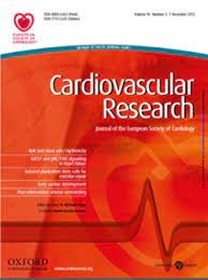Sweeteners: erythritol, xylitol and cardiovascular risk - friend or foe?
IF 13.3
1区 医学
Q1 CARDIAC & CARDIOVASCULAR SYSTEMS
引用次数: 0
Abstract
Hyperglycemia harms vascular health and promotes platelet aggregation. Reducing glucose concentration is crucial, and sugar alcohols may aid this effort. Used for over 50 years in food, cosmetic, and pharmaceutical industries, erythritol and xylitol minimally affect plasma glucose and insulin levels while promoting the release of beneficial gastrointestinal hormones such as e.g. glucagon-like peptide-1 (GLP-1). These properties make them particularly appealing for individuals with diabetes, obesity, and metabolic syndrome. Recent pilot trials suggest that xylitol and erythritol might temporarily alter platelet aggregation. Studies on critically ill patients receiving large intravenous doses and Mendelian randomization trials do not link sugar alcohols to significant cardiovascular risks. Sugar alcohols are also endogenously produced in the body, and while their increased production under certain conditions is not fully understood, it requires further research. This review discusses the physiology and metabolism of erythritol and xylitol, and other sugar alcohols, their roles in metabolomic profiling, effects on platelet aggregation and cardiovascular risk, related genetic disorders, vascular impacts, and usage in critically ill patients.甜味剂:赤藓糖醇、木糖醇和心血管风险是敌是友?
高血糖损害血管健康,促进血小板聚集。降低葡萄糖浓度是至关重要的,而糖醇可能有助于这一努力。在食品、化妆品和制药行业中使用了50多年,红糖醇和木糖醇对血糖和胰岛素水平的影响最小,同时促进有益胃肠激素的释放,如胰高血糖素样肽-1 (GLP-1)。这些特性使它们对糖尿病、肥胖和代谢综合征患者特别有吸引力。最近的试点试验表明木糖醇和赤藓糖醇可能暂时改变血小板聚集。对接受大剂量静脉注射的危重病人的研究和孟德尔随机试验没有将糖醇与显著的心血管风险联系起来。糖醇也是体内内源性产生的,虽然它们在某些条件下的产量增加尚不完全清楚,但需要进一步研究。本文综述了赤藓糖醇和木糖醇和其他糖醇的生理和代谢,它们在代谢组学分析中的作用,对血小板聚集和心血管风险的影响,相关遗传疾病,血管影响以及在危重患者中的应用。
本文章由计算机程序翻译,如有差异,请以英文原文为准。
求助全文
约1分钟内获得全文
求助全文
来源期刊

Cardiovascular Research
医学-心血管系统
CiteScore
21.50
自引率
3.70%
发文量
547
审稿时长
1 months
期刊介绍:
Cardiovascular Research
Journal Overview:
International journal of the European Society of Cardiology
Focuses on basic and translational research in cardiology and cardiovascular biology
Aims to enhance insight into cardiovascular disease mechanisms and innovation prospects
Submission Criteria:
Welcomes papers covering molecular, sub-cellular, cellular, organ, and organism levels
Accepts clinical proof-of-concept and translational studies
Manuscripts expected to provide significant contribution to cardiovascular biology and diseases
 求助内容:
求助内容: 应助结果提醒方式:
应助结果提醒方式:


